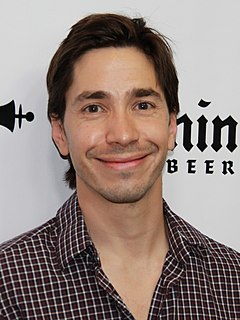A Quote by R. J. Cutler
Directing plays lacked the immediacy and connection to real world events that journalism offered; journalism lacked the drama, theatricality and subjective storytelling of theater. It wasn't until I had the idea of making a documentary film about the 1992 presidential campaign that these two passions came together in 'The War Room.'
Related Quotes
If I were writing an article for the newspaper, it would be thesis statement, information, information, supporting arguments. That would be the setup. When I'm making a documentary, the pacing of the film and the way that you sort of switch from character to character - all of those are more about storytelling than straight journalism.
Working on 'The War Room' was a thrill, not only because we were given such exquisite access to the nerve center of Bill Clinton's first presidential campaign, but for me personally, it was so exciting to be producing my first film and working with documentary filmmaking legends D.A. Pannebaker and Chris Hegedus, who were the film's directors.
I personally think honestly disclosing rather than hiding one's subjective values makes for more honest and trustworthy journalism. But no journalism - from the most stylistically 'objective' to the most brazenly opinionated - has any real value unless it is grounded in facts, evidence, and verifiable data.
I personally think honestly disclosing rather than hiding ones subjective values makes for more honest and trustworthy journalism. But no journalism - from the most stylistically objective to the most brazenly opinionated - has any real value unless it is grounded in facts, evidence, and verifiable data.
I think acting came later in life when I went to college. I started out there. I wasn't a big star in the school plays or anything. I guess I just really liked stories. I was an English-literature major, and that's all about stories and narratives. Film and theater are very powerful storytelling mediums. You sit in a dark room and enter another world. I love that as a member of the audience, and I sort of wanted to get on the other side.
I had a mind inquiring enough to question world events, as well as the passion fostered by my background to care, but I lacked the emotional maturity to process these things. That made me ripe for Islamist recruitment. Into this ferment came my recruiter, himself straight out of a London medical college.
Anyone who does investigative journalism is not in it for the money. Investigative journalism by nature is the most work intensive kind of journalism you can take on. That's why you see less and less investigative journalism at newspapers and magazines. No matter what you're paid for it, you put in so many man-hours it's one of the least lucrative aspects of journalism you can take on.

































